Kei Tua o te Pae
Kei Tua o te Pae/Assessment for Learning: Early Childhood Exemplars is a best-practice guide that will help teachers continue to improve the quality of their teaching.
The exemplars are a series of books that will help teachers to understand and strengthen children's learning. It also shows how children, parents and whānau can contribute to this assessment and ongoing learning.
We are making improvements to our download-to-print functionality. So if you want a printed copy there are PDF versions available at the bottom of the main cover page.
Health
-
Hannah goes without a nappy
-
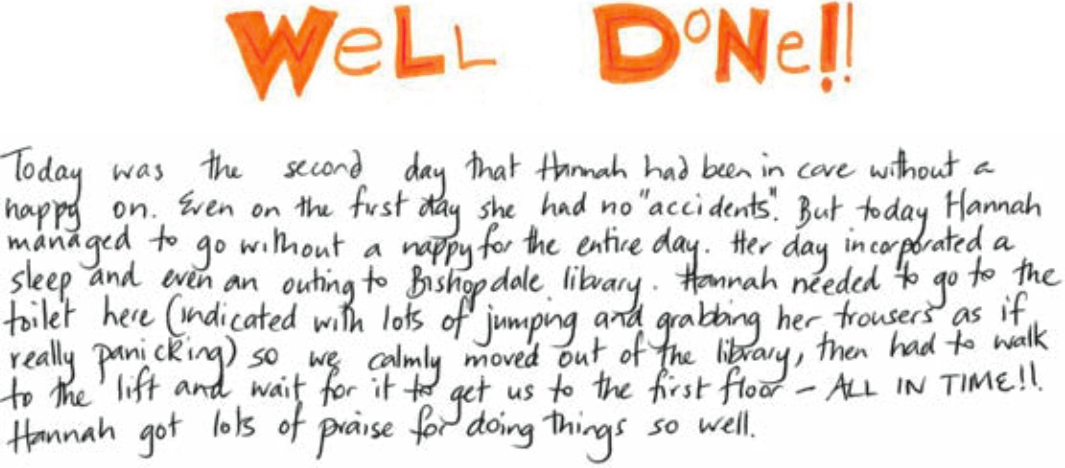
Hannah is beginning to recognise the physical feelings or cues her body is giving her about needing to use the toilet.
Hannah used some very creative strategies for communicating her needs to me! Hannah responded calmly to the task of finding a toilet in time.
Kristina
-
-
Today in the playroom
-
Veins, wonderful veins
November
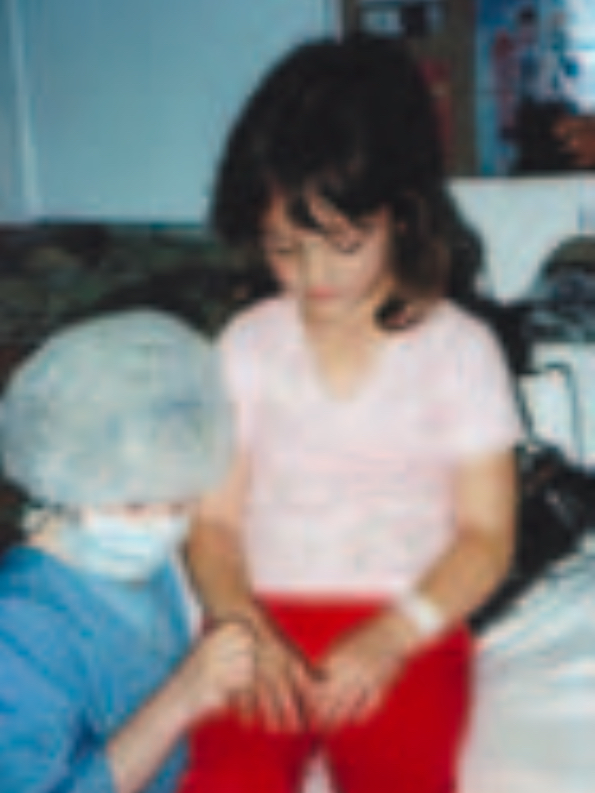
This morning in the hospital playroom we talked about veins in our bodies. Jessica dressed up like a doctor and looked to see if she could find Shani’s veins ... DISCOVERY! Jessica found a vein on the back of Shani’s hand. “Could medicine go into this vein?” she asked.
“Yes,” I replied. “The doctors might think that was a good vein to put medicine into.”
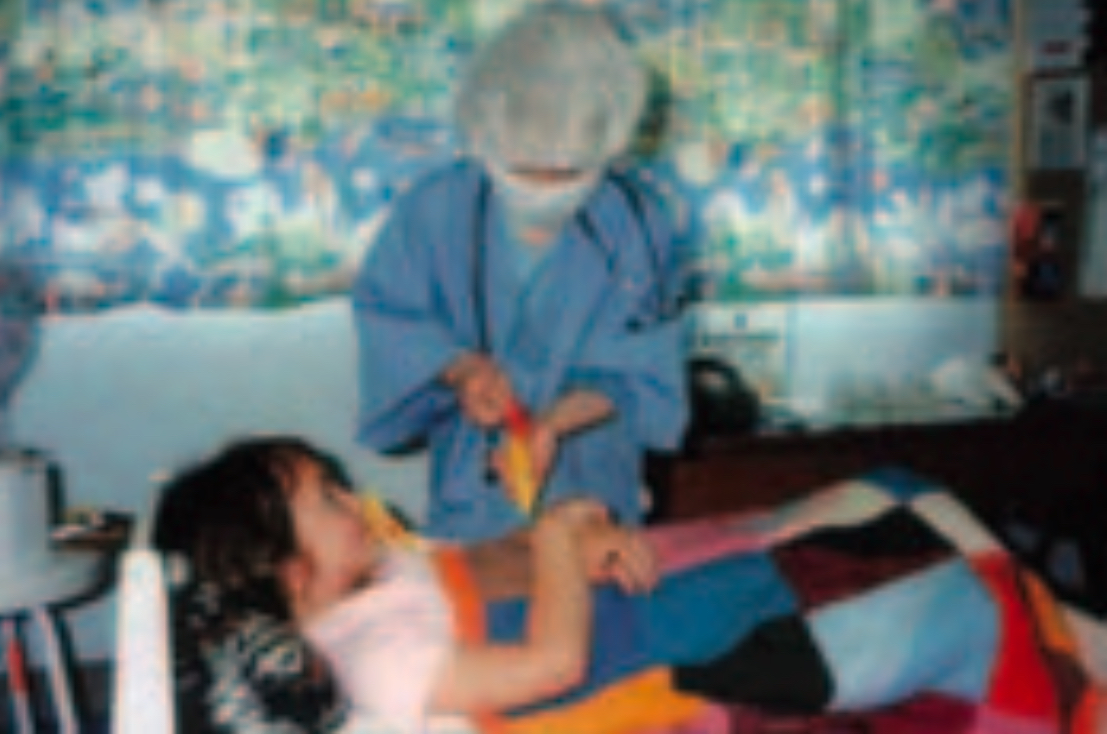
“OK, I’ll be sick, OK?” suggested Shani as she climbed into bed.
“OK – and I’ll put some medicine into your vein,” replied Jessica as she placed a pretend syringe on Shani’s arm.
“Ouch!” Shani exclaimed.
“Sorry about that,” said Jessica, “but I need to put this medicine into your vein so you’ll feel better.”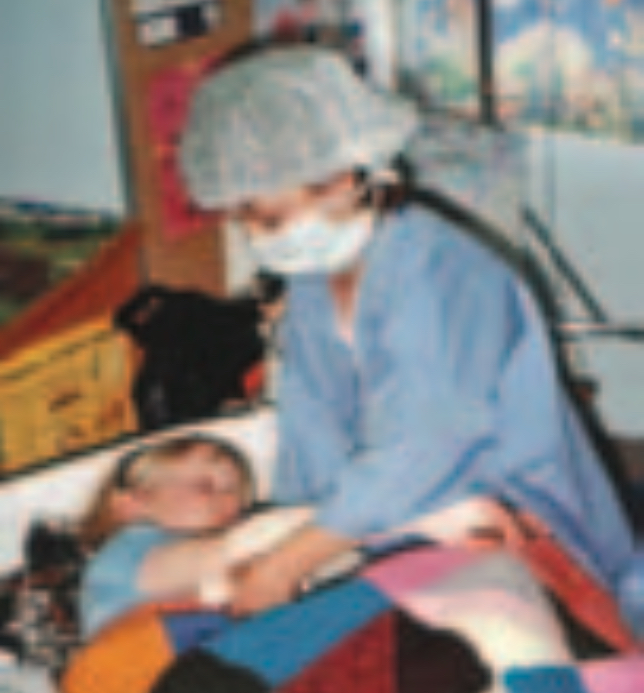
“OK, now it’s my turn to be the doctor,” Shani suggested. She dressed herself in some dress-up clothes and then looked at the back of Jessica’s hand. ANOTHER DISCOVERY!
“Oh – I can see your veins, too. Mmm ... they’re very nice,” she exclaimed. Both girls laughed!
“I’ll be asleep, OK?” suggested Jessica. She shut her eyes as Shani bandaged her arm. “Whoops,” Shani exclaimed as she finished her bandaging. “Now I can’t see your veins at all!”
Comment from Sarah (Hospital Play Specialist):
Shani and Jessica were very interested in finding out about their veins and the insertion of IVs – a procedure that is commonly used when children are hospitalised.
They appeared to have a lot of trust in each other (despite only meeting each other a few days earlier), showing this by letting each other find their veins and taking turns to explore the roles of doctor and patient.
What next?
During further play sessions, I aim to provide opportunities for Shani and Jessica to re-visit this topic if they choose, and I will be available to answer questions or address concerns that they, or other family members may have in regard to this procedure. Discussion with their parents/caregivers about the impact of hospitalisation and the benefits of supporting their children’s interests in healthcare play (for example, at home and in their early childhood centres) may also be useful in easing the transition process from hospital to home.
Daneka's drip
2 June
Today in the playroom, Daneka asked for the pretend drip-stand to be put out.
She looked at the drip hanging from it and said, “But it’s empty.”
We found a bag of fluid and attached it.
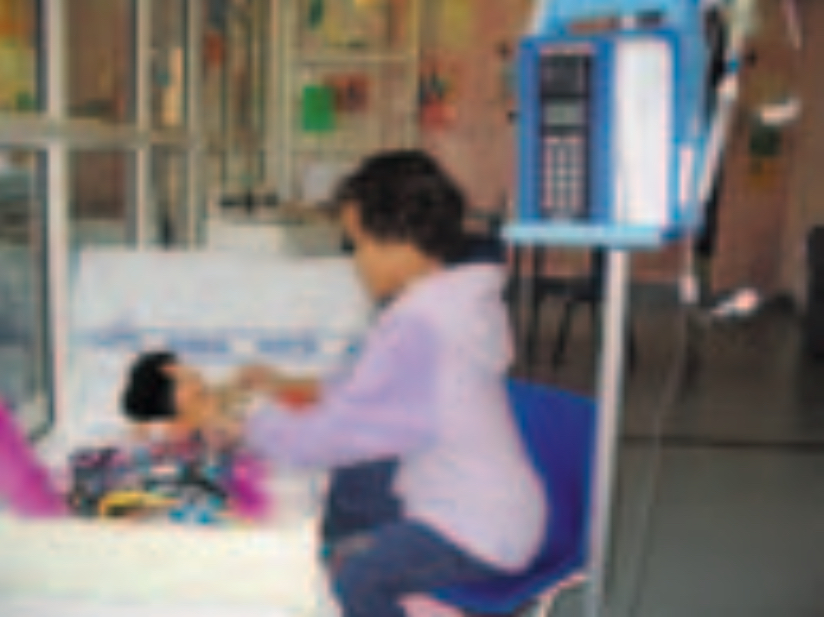
“Where’s the teddy bear bandage? I need a teddy bear bandage to put on me,” she said.
So we found a bandage and Daneka said, “Now I can give myself some medicine.” She taped on the line and then said, “But I need a towel, it’s all running.”
Together we looked at the drip and found the clamps to stop the fluid running through. “Now I can do it,” she said.
She gave herself a (pretend) finger prick. “I need a dolly too.”
She played with the medical equipment until her mum came to get her. “Write a note on it,” she said.
“What shall we write?” I asked. We decide to write:
Please don’t touch. This is Daneka’s drip.
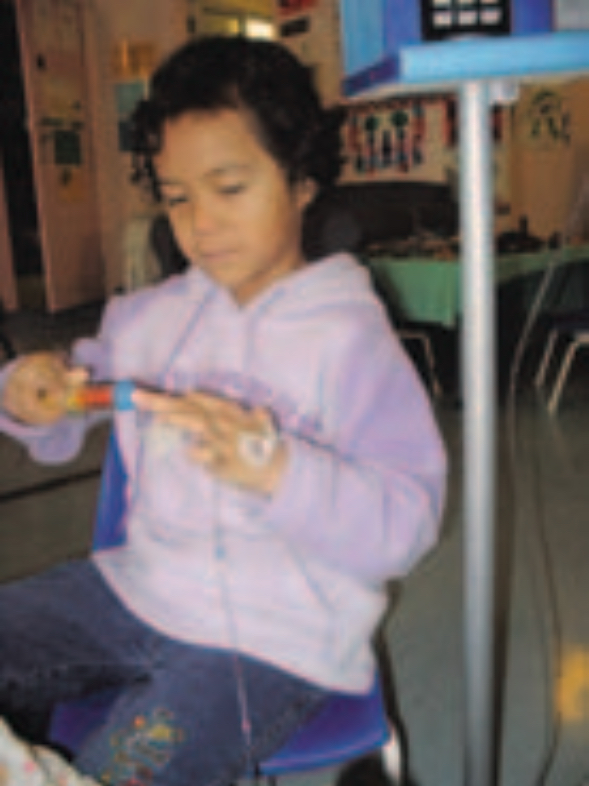
Barbara’s comment:
In her play, Daneka has shown familiarity and confidence with the equipment in the medical play area of the playroom. This has developed from her careful observations of the procedures her brother has experienced during his stay in hospital. She has developed this confidence further by exploring what the drip would feel like if it were on her.
The opportunity for brothers and sisters of hospitalised children to play with real and pretend medical equipment is valuable in supporting and extending their understanding of what is happening to their siblings.
Katy's hospital check-up
April
Children’s names: Jake and Matthew
Play Specialist: Sarah
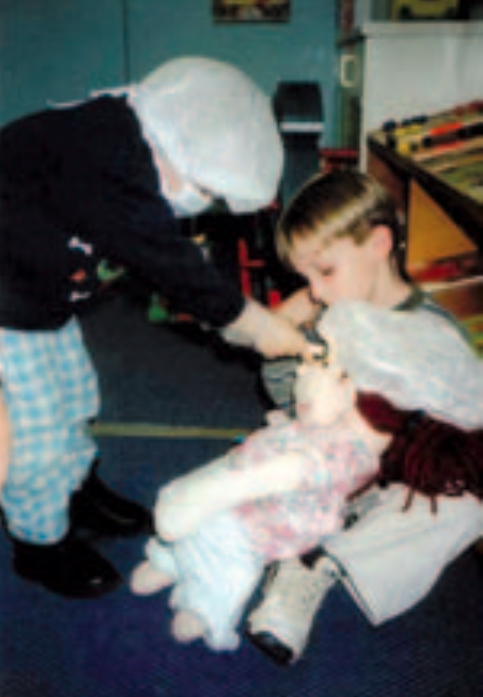
“What’s wrong with Katy?” asked Jake, dr in his doctor clothes.
“Don’t know,” replied Matthew.
“I’ll do a check-up!” suggested Jake.
Matthew sat Katy on his knee as Jake loo inside his doctor’s bag. Jake pulled out a torch.
“OK. I’ll check her eyes,” encouraged Jake “Look at the light,” he instructed.
Matthew put his hand inside the puppet and turned her head towards the torch. He watched carefully as Jake shone the light into Katy’s eyes.
“That’s good,” encouraged Jake, “Now I’ll listen to your heart.”
Jake searched his bag once more, selected a stethoscope, and put this on. Matthew held Katy still.
“OK, breathe in,” Jake instructed as he placed the end of the stethoscope on Katy’s chest.
Matthew used his hand inside the puppet, opening and closing her mouth to indicate she was breathing.
“Breathe out,” Jake directed, as he moved the stethoscope around Katy’s chest. Matthew looked eagerly at Jake for his diagnosis. “Good. She’s OK. She can go now!” he informed Matthew.
“Yay!” laughed Matthew as he jumped up with the puppet. “Bye!” he called, as he carried Katy to a new activity.
A comment from Sarah:
Jake and Matthew participated in a wonderful co-operative healthcare play session, even though these two boys had only spent a brief amount of time together in hospital. It was very interesting and informative to observe how the boys used the puppet in their play. This is an invaluable resource I utilise regularly in order to gain understanding about the meaning that children take from their hospital experiences.
Jake and Matthew’s interest in, and knowledge of, the hospital environment was highlighted in this interaction. Jake demonstrated confidence, control, and a good understanding about how some of the medical equipment was used. Matthew played a valuable role in providing comfort and support to Katy during her check-up (for example, by sitting her on his knee and helping her to keep still), highlighting his thoughtful and caring nature.
-
-
Dreaming the day away
Lewis went to sleep early but only for a little while before he let us know that sleep wasn’t what he wanted just then. So up to play and we set up a blanket outside for him to enjoy the sights and sounds of the children around him. Some older ones came over straight away as Lewis is a favourite baby. They offered him toys and for a while he was interested but not offering his usual delighted interactions.
So we tried a sleep again but “No way” said Lewis. What about a bottle then and we settled down outside but, oh no, too much action out there. So we went to have a drink in our very quiet inside room. What a difference! No busy attending to everything else. Straight to the business at hand. And when he’d finished, he looked at me in that dreamy way nodding his head slightly as if to say, “Tuck me in please, I’m so full I can hardly hold myself up.”
Then snuggling in, dummy and musical toy in place, he instantly went to sleep.
What learning was happening?
Well, the learning was all mine as I tried to figure out what Lewis wanted. In the end, it was a nice warm bottle, a quiet place to drink it and being tucked up snug and warm in bed. I promise I’ll try to remember the signs next time, Lewis.
-
Fish pie, please
-
May
Teacher: Fran
Nicholas loves all the smells, sights and workings of the kitchen at the centre. He often enquires about what we are having for lunch or afternoon tea. The following conversation about the lunch menu was recorded by Alison, the centre chef.
On Friday Nic asked me if we could have smoked fish pie for lunch as it was his favourite dish. I replied that we were out of milk, so I couldn’t make it. Nic then asked me if we needed milk to make fish pie. Not hearing his statement correctly, I once again said that we didn’t have any milk. Nic’s reply: “No, I’m asking you if you need milk to make the fish pie.” I told Nic about all the ingredients that were required to make the white sauce – flour, milk and butter.
Today was Monday and after the weekend Nic had not forgotten. “Alison, can we have fish pie today now that we have milk? You can make it if you stir it.”
And so the menu for Monday reads as follows:
Fish pie on a bed of rice.
Alison, Tots Centre Chef
Nicholas, your interest in all things around you is apparent in your everyday interactions with others and the environment. When Alison told me about her conversation with you, it reminded me of how much you love to converse with others, enquiring, asking questions and making discoveries. I wonder if you like to cook at home? Does your interest in cooking stem from watching your mum and dad in the kitchen making special meals for you or just from your love of good food?
Fran
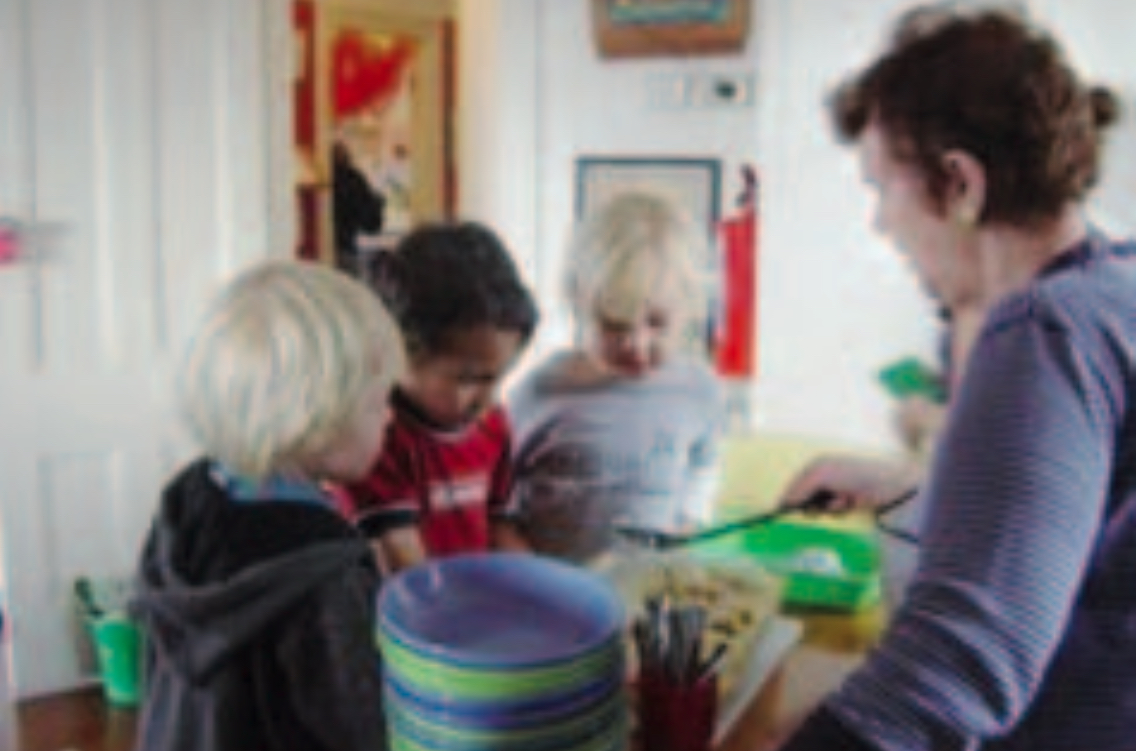
Parents’ voice
Our kitchen is the focal point of our living area and much time is spent there during our time together at home as a family. Nic always has an interest in what we are cooking or doing in the kitchen. More recently he has started to get more involved in the goings-on in our kitchen, and has helped Mum cook a banana cake with chocolate chips, and last weekend, a chocolate cake. He is especially helpful when it is time to eat it! Maybe we could all make smoked fish pie in our kitchen.
Mum and Dad
-
